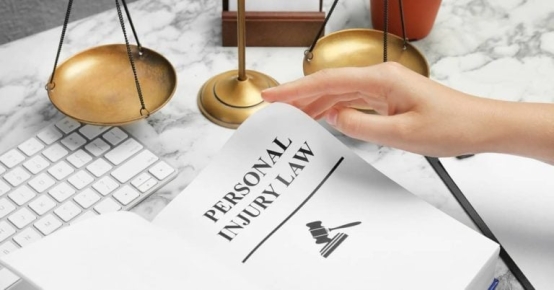Personal injury lawyers are instrumental in helping clients reach fair settlements, often resolving cases before trial through strong negotiation and careful preparation. By mastering settlement strategy, assessing damages comprehensively, and tackling negotiation challenges head-on, these professionals secure compensation that reflects the true extent of their clients’ losses. Understanding how experienced attorneys operate highlights the importance of choosing capable legal representation in injury cases.

How Personal Injury Lawyers Secure Fair Settlements
Personal injury attorneys work diligently to obtain fair settlements by combining evidence-based preparation with strategic negotiation. Most personal injury cases — more than 95% — are resolved outside of court, largely because of the credibility that well-prepared lawyers bring to the negotiation table. They gather extensive supporting materials, including medical documentation, accident photos, and witness statements, to establish a persuasive case that encourages insurers to settle fairly.
The Power of Effective Negotiation
Negotiation stands as the central element in reaching equitable settlements. Lawyers advocate for their clients by engaging directly with insurance companies and opposing counsel, using detailed legal reasoning and documented evidence to strengthen their bargaining position. They define realistic settlement ranges and build leverage by signaling readiness to proceed to trial if necessary. Such strategic communication often prompts higher settlement offers and faster resolutions.
Assessing and Calculating Damages
Accurate valuation of damages is key to achieving a fair result. Attorneys use structured methods, such as the multiplier or per diem approach, to quantify pain, suffering, and emotional distress. They also consider tangible financial losses — medical bills, rehabilitation costs, and loss of earning potential — to ensure every component of the injury’s impact is addressed. This detailed financial assessment helps clients obtain settlements that truly cover both immediate and future needs.
The Value of Strong Evidence
Comprehensive evidence collection forms the backbone of an effective settlement strategy. Lawyers compile all relevant materials, including doctor’s reports, treatment records, and police documentation, to substantiate the claim. Continuous medical follow-up reinforces the seriousness of the injury and strengthens the argument for fair compensation. This attention to detail not only supports negotiation leverage but also demonstrates the client’s credibility throughout the claims process.
Common Challenges in Settlement Negotiations
Settlement discussions often encounter obstacles such as contested fault, disputes over injury severity, or deliberate stalling by insurers. Skilled lawyers counter these tactics by relying on factual evidence, legal precedent, and the implicit pressure of potential litigation. Rejecting low initial offers and maintaining firm negotiation principles allow attorneys to achieve settlements that more accurately reflect the client’s true damages.
Choosing an Experienced Personal Injury Lawyer
Seeking professional legal support after an accident is essential. A personal injury lawyer not only guides clients through complex procedures but also protects them from accepting inadequate offers. With their expertise, they handle documentation, communication, and, when required, litigation. Choosing a reputable and dedicated attorney significantly increases the chances of securing a fair settlement without the emotional and financial strain of a courtroom battle.
Why Understanding Personal Injury Law Matters
Gaining insight into how personal injury lawyers negotiate and settle claims is valuable for anyone who may need legal assistance after an accident. These professionals combine legal knowledge with negotiation skill to ensure their clients receive rightful compensation. By understanding the processes behind evidence gathering, valuation, and settlement, individuals can better appreciate the role injury lawyers play in achieving justice. This knowledge empowers potential clients to make informed choices and recognize the importance of capable legal representation when pursuing fair outcomes.
